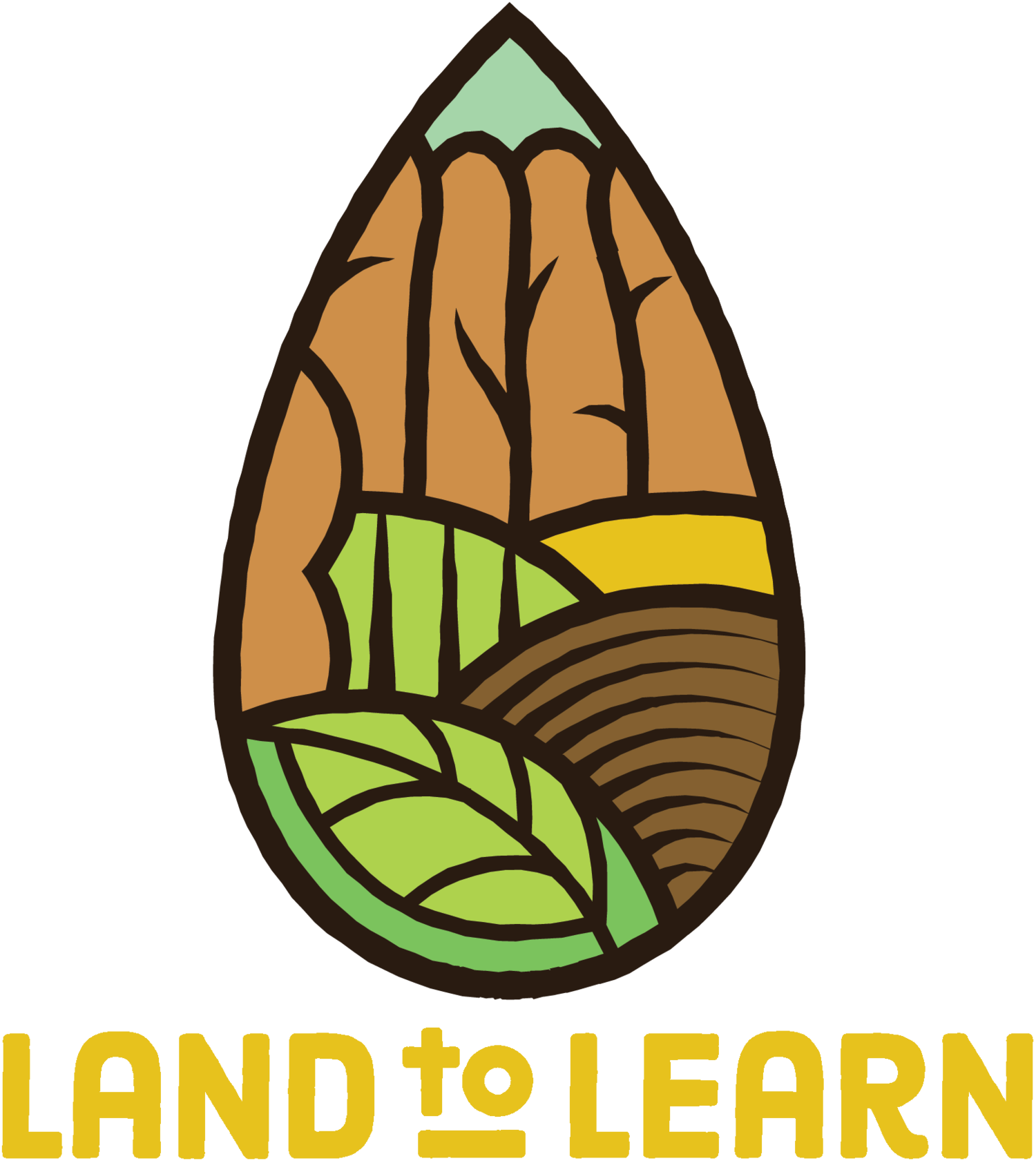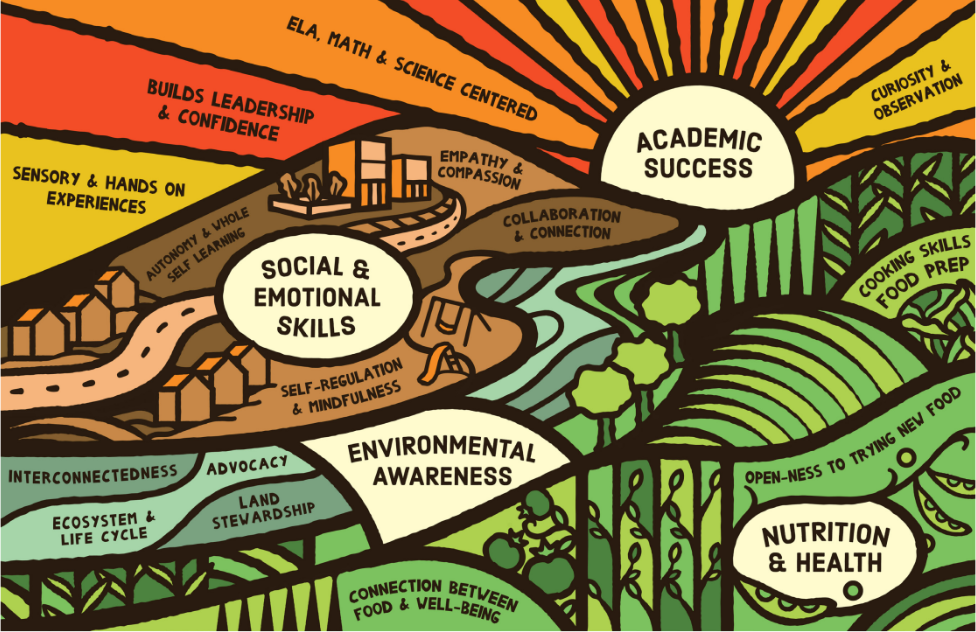THE NEED
Why is garden learning important?
We serve Kindergarten through 3rd grade public elementary school children in Kingston, Newburgh and Beacon. These areas are among the region’s highest-needs communities, where the majority of students are economically disadvantaged and BIPOC. Facing interlocking challenges of poverty, marginalization, poor nutrition, low access to green space, and poor education results, many of these children face numerous obstacles to achieving academic success, connection to nature, and a healthy lifestyle. Between the pressures of limited funding and academic testing, local public schools cannot offer outdoor education, nutrition lessons, and innovative learning opportunities on their own. That’s where Land to Learn steps in.
Nutrition
The USDA recommends that children eat 2-3 cups of vegetables a day and 2 cups of fruit a day, but current findings suggest that up to 93% of children eat less than half of this recommendation. In a 2021 study the CDC found that 49% of 1 - 5 year-olds do not eat a daily vegetable at all, and recommends “programs that provide young children an opportunity to learn about food, agriculture, and gardening through hands-on experiences” in order to increase vegetable consumption among young children, which is a habit that likely carries through an individual’s lifetime.
Academics
Our school districts have limited capacity to offer experiential learning, science, applied hands-on studies, outdoor and food education, all of which have been proven to be beneficial to children’s learning and academic success.
Social & Emotional
So many kids don’t have the tools they need to effectively navigate themselves and their social surroundings. Across the country, especially in underserved communities, students deal with increasing oppressions, social isolation, bullying and other antisocial behaviors, and disproportionate disciplinary rates. Schools are only recently realizing the importance of teaching skills like self-management, self-awareness, responsible decision-making, relationship skills, and social awareness. These tools are necessary to engage in learning, behave with kindness and empathy, reduce depression and stress, and perform academically.
Environment
Our students face a nature deficit, especially those in Newburgh. Even though the region in which we work is rich in organic agriculture and outdoor recreation, many of our local children don’t have opportunities to spend time outside due to various factors, such as high crime and limited transportation. Many of our students grow up stuck in their urban neighborhoods, divorced from the nearby natural world. Many of our students have never touched dirt before their first garden lesson, and don’t know where vegetables come from. Not knowing the earth, they have less reason to love it or care for it.
Our Impact
How does garden learning create change?
Academics
Our student-centered, experiential, democratic approach to learning fosters agency within students, both in the classroom and beyond. Teachers report increased engagement during our lessons, and studies find that students in garden-based programs showed more interest and enthusiasm related to learning activities, maintained better attendance with fewer disciplinary issues, and higher achievement in standardized tests and overall GPAs.
Nutrition
Children are empowered to try eating vegetables by growing them, making recipes, and repeatedly interacting with them in a fun and encouraging environment. Participation in school garden programs is proven to increase consumption of vegetables and other whole foods! 90% of our participants eat the nutritious foods served and prepared during Land to Learn programs. SproutEd participants are 76% more likely to eat a diversity of fruits and vegetables compared with the national average. Many parents share with us that their children request veggies for dinner after growing them in our gardens.
Social and Emotional
By caring for delicate young plants, engaging in self-directed learning, and working together to keep the garden healthy, our students learn patience, gentleness, cooperation, observation, mindfulness, and interdependence. Our teachers observe and research suggests that garden-based learning fosters socio-emotional development.
Environment
Through caring for their small gardens, we help children understand each human’s responsibility in caring for the earth. Being in garden habitats and studying our local ecosystems, students’ interest in and understanding of nature increases, which lays foundations for them to become environmental stewards. 96% of classroom teachers report increased interest in nature, science, and gardening among students. Land to Learn programs’ participants’ understanding of the garden as a vibrant habitat for animals increases by an average of 41%.
Long-term Change
While we observe measurable, immediate impacts related to the above objectives from our garden programs, we see our greatest impacts in the long-term shifts of our students’ understanding and engagement in the world. Because we work with students for 4 years (K-3rd), and provide opportunities for engagement beyond the school day, Land to Learn lessons are deeply reinforced. A child may enter our program afraid of dirt and unsure where food comes from, and leaves an explorer with an understanding of botany and ecology, advocating for healthy change in their family’s food habits, wanting to eat spinach salad, and able to tend to their own garden.


